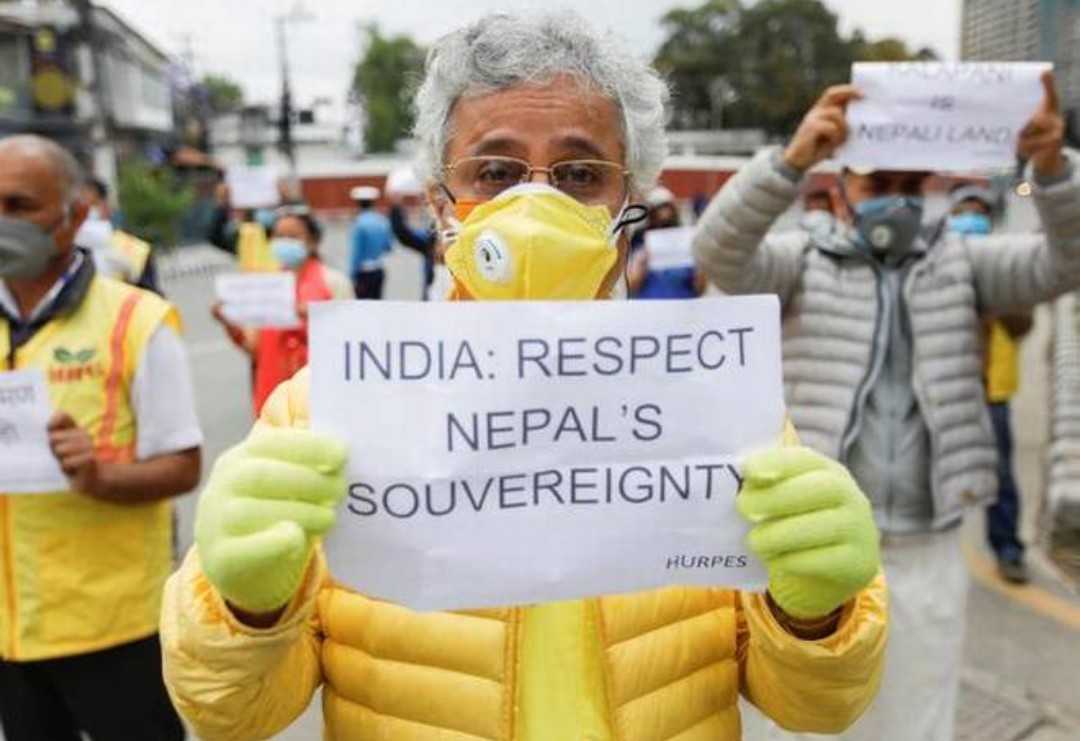News agency ANI also quoted Nepali cable TV providers to report that signals for Indian news channels have been switched off in the country.

At a time when Nepal is going through political turbulence and India-Nepal relations remain strained, Kathmandu has banned all Indian news channels except the state broadcaster Doordarshan starting today evening.
The report was carried in Nepalese publication The Himalayan Times, while in India, Free Press Journal carried a report and India Today foreign affairs editor put out a tweet confirming the same. News agency ANI also quoted Nepali cable TV providers to report that signals for Indian news channels have been switched off in the country.
According to The Himalayan Times, the move comes after some TV channels indulged in “defamatory” reportage about Nepal’s prime minister KP Sharma Oli and the Chinese envoy to Nepal Hou Yanqi.
“These measures follow the events wherein an Indian news channel, Zee Hindustan, broadcasted an imaginative and defamatory programme linking PM Oli with Chinese ambassador to Nepal Hou Yanqi,” The Himalayan Times said.
Hou’s involvement in internal politics of Nepal has been widely reported in the Indian media. She courted fresh controversy after she held meetings with Nepalese political leaders at a time when the ruling Nepal Communist Party (NCP) was dealing with internal strife, and the now finalised divide was still impending. Over the past few months she has met, Oli, Pushpa Kamal Dahal ‘Prachanda”, President Bidya Bhandari and key NCP leaders, Hindustan Times reported.
On Sunday, the Chinese ambassador met with senior NCP leader and former prime minister Madhav Kumar Nepal and discussed the current political situation, PTI reported.
The meetings come at a time when the ruling party has seen deep rifts, with a faction led by Prachanda and Madhav Kumar pressing Oli to resign both as party chair and prime minister.
Hou had made similar rounds to ruling party leaders’ residences back in May as well when the ruling party was in a deep trouble. Meeting with Oli, Prachanda, Nepal and other senior party leaders, Hou had then advised party unity.
A number of political party leaders have termed the Chinese envoy’s series of meetings with the ruling party leaders as interference in Nepal’s internal political affairs. “Will the democratic republic operated through a remote control benefit Nepalese people?” former foreign minister and Rastriya Prajatantra Party chairman Kamala Thapa tweeted, in an apparent reference to the Chinese envoy’s meeting with the NCP leaders.
Thapa, however, was also critical of the Indian media’s coverage of Oli as he pointed out that disparaging remarks against the sovereign nation’s prime minister will do little to improve ties between the two countries.
This is not the first time that Nepal has blacked out Indian media. Kathmandu had blocked Indian news and entertainment channels in 2015 as well, when relations hit a rock-bottom after a blockade at India-Nepal border.
The differences between the two factions of the Nepal Communist Party recently intensified after the prime minister unilaterally decided to prorogue the budget session of Parliament and over to the government’s lackluster response to the COVID-19 pandemic and his unilateral actions, bypassing the party.
There were sporadic demonstrations across the country on Wednesday in support of Oli, despite an agreement with Prachanda not to direct any street protests. The Prachanda faction has been demanding Oli’s resignation, saying his recent anti-India remarks were “neither politically correct nor diplomatically appropriate.”
With inputs from PTI; FP

